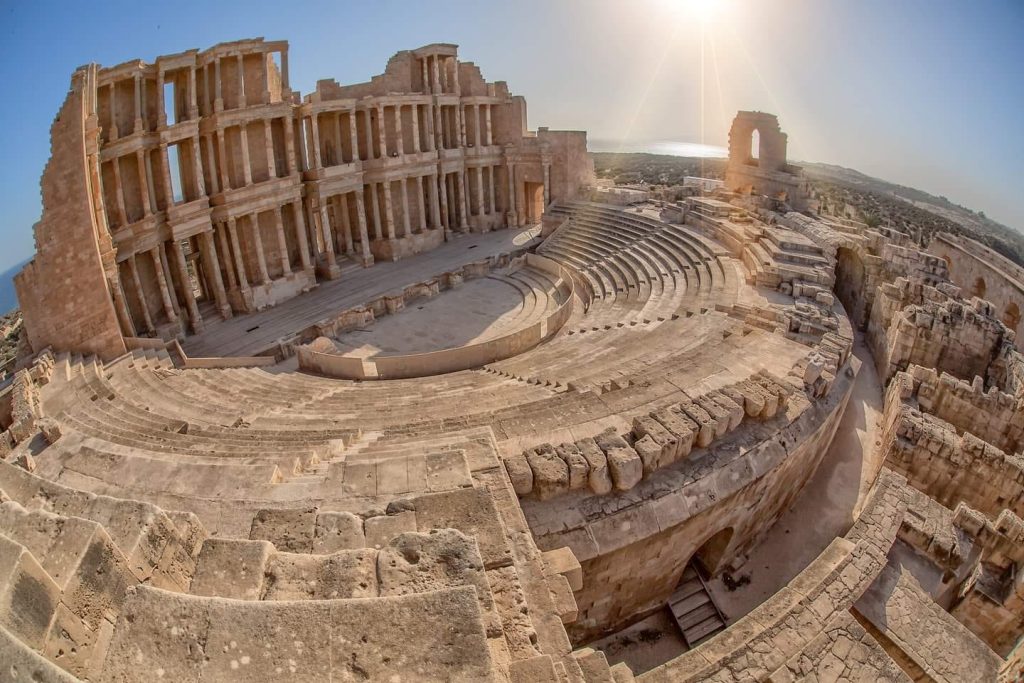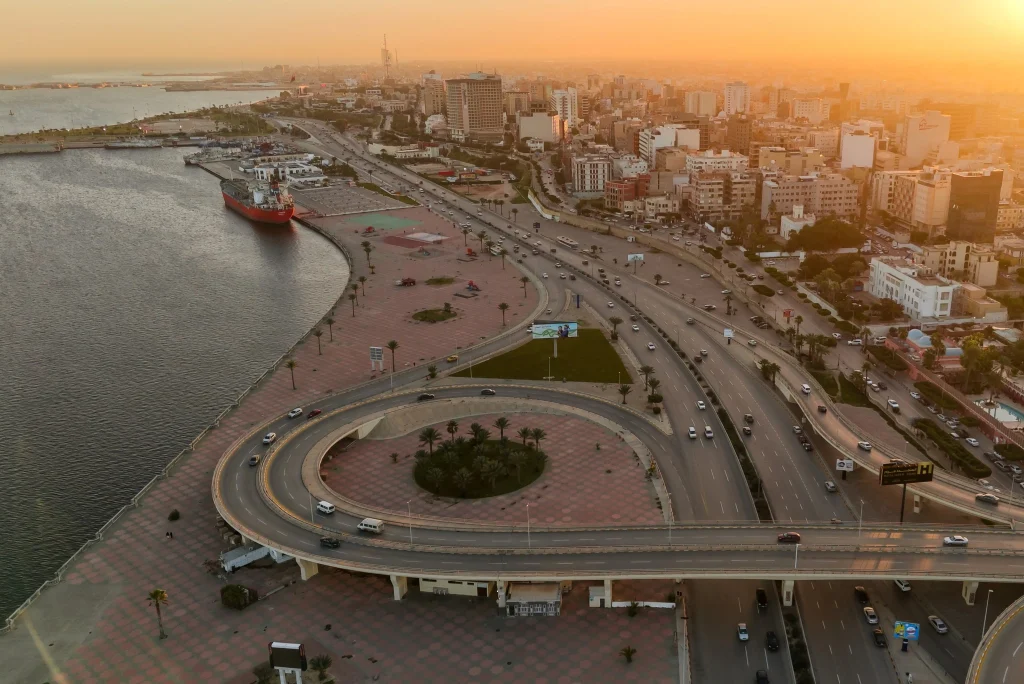In Libya’s complex legal landscape, out-of-court settlements have emerged as a strategic solution for resolving disputes efficiently. These alternatives to traditional litigation not only save time and resources but also foster amicable relationships between parties. As we navigate this evolving terrain, understanding the nuances of out-of-court settlements becomes essential for both individuals and businesses.
At Qabas, we specialise in providing expert legal advisory services tailored to the unique needs of our clients. Our commitment to excellence drives us to set industry benchmarks, ensuring that our clients receive innovative solutions that align with their objectives. By leveraging our extensive knowledge and experience in Libyan law, we empower our clients to make informed decisions, paving the way for successful outcomes in their legal matters.
Table of Contents

Overview of Out-of-Court Settlements in Libya
Out-of-court settlements represent an essential aspect of dispute resolution in Libya, allowing parties to resolve legal conflicts without resorting to litigation. Qabas leads this shift through its deep expertise in Libyan law, guiding clients towards efficient and effective resolutions.
We focus on our commitment to delivering results with accuracy and integrity. Our team of legal experts understands the nuances of the Libyan legal system and employs strategic approaches tailored to each client’s situation. This dedication helps our clients navigate the complexities of out-of-court settlements seamlessly.
Legal challenges frequently arise in Libya, ranging from contractual disputes to business negotiations. We address these issues by providing comprehensive solutions grounded in our extensive knowledge. Our insight into the legal frameworks governing these matters positions Qabas as the definitive choice for legal services.
With a strong emphasis on maintaining positive relationships between disputing parties, we encourage collaborative dialogue that fosters mutual understanding. Our goal is to achieve settlements that preserve business integrity and promote long-term partnerships, all while minimising time and resource expenditure.

Historical Context
The concept of out-of-court settlements in Libya has transformed over recent decades, reflecting significant shifts in legal practices. Understanding this evolution helps contextualise Qabas’role in guiding clients through the complexities of dispute resolution.
Evolution of Dispute Resolution
Dispute resolution in Libya has experienced substantial changes since the early 2000s. The traditional litigation approach often led to prolonged legal battles and strained relationships. As a result, out-of-court settlements gained traction, offering a more expedient and less adversarial avenue for conflict resolution. Qabas leverages its profound expertise in Libyan law to facilitate these settlements, enabling parties to reach agreements swiftly while preserving their professional relationships. By focusing on collaborative dialogues, we enhance the likelihood of achieving mutually beneficial outcomes.
Influence of Cultural Practices
Cultural practices in Libya significantly influence the approach to dispute resolution. Local customs favour maintaining harmonious relationships, which aligns closely with the principles of out-of-court settlements. This cultural inclination towards negotiation and compromise enhances the practicality of settlements. Qabas understands these cultural nuances, strategically applying this knowledge to advance clients’ interests. Our firm’s commitment to delivering results with precision and integrity stems from a deep understanding of the societal and legal frameworks in Libya, allowing us to navigate the complexities of both legal challenges and cultural dynamics effectively. By providing tailored solutions that resonate with local practices, we position ourselves as the definitive choice for clients seeking legal services in Libya.

Legal Framework Surrounding Out-of-Court Settlements
We examine the legal framework governing out-of-court settlements in Libya, focusing on pertinent national legislation and the role of international law. Our expertise in Libyan law equips us to navigate complex legal landscapes effectively.
National Legislation
Libya’s legal framework acknowledges out-of-court settlements as valid mechanisms for dispute resolution, primarily governed by the Civil Code and relevant commercial laws. Provisions exist that encourage amicable settlements, offering parties flexibility in resolving conflicts without resorting to lengthy court procedures. For example, articles within the Civil Code facilitate negotiation and mediation, permitting parties to draft binding agreements that align with their specific needs.
Our deep understanding of these legislative nuances allows us to champion different dispute types, including commercial contracts and personal matters. We ensure clients remain informed about their rights and obligations while guiding them through effective negotiation strategies. Our commitment to delivering results with precision and integrity fosters confidence among our clients.
Role of International Law
International law also plays a significant role in shaping out-of-court settlement practices in Libya. Treaties and agreements that Libya has ratified encourage alternative dispute resolution (ADR) methods, promoting a culture of negotiation and compromise. We leverage this international framework to provide clients with comprehensive legal solutions that respect both domestic and global standards.
Our strategic approach combines local knowledge with international best practices, enhancing our clients’ ability to engage in constructive dialogue while protecting their interests. We address common legal challenges, such as cross-border disputes and contractual disagreements, ensuring our solutions resonate with both Libyan law and international norms. By positioning ourselves as the definitive choice for legal services, we empower clients to achieve positive outcomes efficiently and effectively.
Advantages of an Out-of-Court Settlement in Libya
Out-of-court settlements offer numerous advantages in Libya’s legal landscape, enhancing our clients’ ability to resolve disputes effectively.
Cost-Effectiveness
Out-of-court settlements significantly reduce legal expenses. By avoiding lengthy court proceedings, parties save on court fees and associated costs. Our expertise enables clients to navigate negotiations efficiently, ensuring financial resources focus on productive outcomes rather than protracted legal battles.
Time Efficiency
Out-of-court settlement processes save valuable time. Traditional litigation can extend over months or even years, leading to uncertainty and frustration. We streamline the resolution process, allowing clients to reach agreements within shorter timeframes while maintaining focus on their core business activities.
Preservation of Relationships
Out-of-court settlements in Libya foster and preserve relationships, paramount in Libya’s cultural context. In many disputes, parties prefer to maintain harmonious connections rather than enter adversarial proceedings. Our commitment to facilitating collaborative discussions ensures that all parties feel heard and respected, promoting long-term partnerships post-settlement.
Our deep understanding of the Libyan legal framework further enhances our ability to guide clients through these settlements, ensuring that the processes align with both national legislation and international best practices. Qabas serves as the definitive choice for those seeking efficient, effective, and culturally-sensitive legal solutions.

Challenges to Out-of-Court Settlements in Libya
Out-of-court settlements in Libya face several challenges affecting their widespread adoption. Understanding these obstacles allows us to implement effective strategies for successful dispute resolution.
Lack of Awareness
Lack of awareness about the benefits of out-of-court settlements in Libya restricts their use among potential participants. Many individuals and businesses remain uninformed about the efficiency and efficacy of these alternative dispute resolution methods. We at Qabas address this challenge by providing comprehensive legal education and resources to our clients. Our expertise in the Libyan legal framework allows us to convey the advantages of out-of-court settlements, ensuring that our clients make informed decisions. We offer informative workshops and consultations, highlighting how a well-structured settlement process can save time, reduce costs, and preserve valuable relationships.
Power Imbalances
Power imbalances among parties present significant hurdles to achieving a fair out-of-court settlement in Libya. In many cases, stronger parties may dominate negotiations, causing weaker parties to feel pressured to accept unfavourable terms. At Qabas, we recognise these dynamics and prioritise equitable negotiations. Our deep understanding of Libyan law enables us to identify and mitigate these imbalances effectively. We employ strategic approaches, such as facilitating discussions that empower all parties involved, ensuring that each participant’s voice is heard and respected. Through our commitment to delivering results with precision and integrity, we create an environment conducive to fair and sustainable agreements.
Conclusion
Embracing an out-of-court settlement in Libya represents a significant shift in how we approach dispute resolution. By prioritising efficiency and relationship preservation, we can navigate legal challenges more effectively. Qabas stands at the forefront of this transformation, offering the expertise needed to guide clients through the complexities of Libyan law.
As we continue to advocate for these alternative methods, it’s crucial to raise awareness about their benefits and empower all parties involved. By fostering an environment conducive to fair negotiations, we can ensure that out-of-court settlements become a preferred choice for resolving disputes in Libya. Together, we can build a more harmonious and collaborative legal landscape.
Frequently Asked Questions
What are out-of-court settlements in Libya?
Out-of-court settlements in Libya are agreements reached between parties to resolve disputes without resorting to litigation. This method allows for more efficient resolutions, often preserving relationships and saving time and resources compared to traditional court processes.
Why are out-of-court settlements preferred over litigation?
Out-of-court settlements are preferred because they are typically faster, more cost-effective, and less adversarial than litigation. They enable parties to maintain positive relationships, which is especially important in the context of Libyan culture.
How does Qabas assist with out-of-court settlements?
Qabas provides specialised legal advisory services that guide clients through the out-of-court settlement process. Their expertise in Libyan law ensures clients are informed of their rights, enabling them to achieve effective and amicable resolutions.
What challenges do out-of-court settlements face in Libya?
Challenges include a lack of awareness about the benefits of such settlements and potential power imbalances among negotiating parties. Qabas works to address these issues by providing education and promoting equitable negotiation strategies.
How does Libyan culture influence dispute resolution?
Libyan culture values harmonious relationships, which aligns well with the principles of out-of-court settlements. This cultural emphasis encourages parties to resolve disputes amicably, making out-of-court methods a more suitable option in many cases.
What legal framework supports out-of-court settlements in Libya?
Out-of-court settlements in Libya are primarily governed by the Civil Code and relevant commercial laws. These regulations acknowledge and encourage amicable resolutions as valid mechanisms for dispute resolution.
How does international law affect out-of-court settlements in Libya?
International law influences out-of-court settlements in Libya through treaties and agreements that promote alternative dispute resolution. Qabas leverages this framework to help clients navigate both local and global legal standards effectively.
What are the benefits of using Qabas for legal disputes?
Employing Qabas ensures clients benefit from expert legal guidance tailored to the Libyan context. Their commitment to fostering collaborative dialogue and understanding of local laws and customs promotes successful outcomes while protecting clients’ interests.



